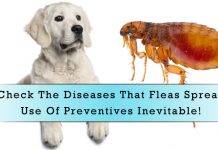Welcoming a new puppy into your home is an exciting and joyous occasion, filled with playful antics and boundless energy. However, along with the cuddles and wagging tails comes a significant responsibility to ensure your furry friend’s health and well-being. Just like humans, puppies require regular health checkups to catch any potential issues early and to lay the foundation for a long, happy life. In this guide, we’ll walk you through the essential health checkups every puppy needs, offering you the knowledge to provide the best care possible. With a little attention and a lot of love, you can help your puppy grow into a healthy and thriving companion.
Understanding Core Vaccinations for Your Puppy
Ensuring your puppy receives the right vaccinations is a crucial step in safeguarding their health and well-being. Core vaccinations are essential as they protect against common and serious diseases that puppies are especially vulnerable to. The primary vaccines recommended for all puppies typically include:
- Canine Distemper: A highly contagious virus affecting the respiratory, gastrointestinal, and central nervous systems.
- Canine Parvovirus: A dangerous and often fatal disease causing severe vomiting and diarrhea.
- Canine Adenovirus: Protects against infectious canine hepatitis and respiratory tract infections.
- Rabies: A critical vaccine as rabies is not only fatal but also a risk to human health.
These vaccinations are typically administered in a series of shots over the first few months of your puppy’s life. Your veterinarian will help establish a schedule tailored to your puppy’s needs, ensuring they are protected during their most vulnerable period. By adhering to this schedule, you are taking an important step in providing a foundation of health for your furry friend.

Nutritional Assessments Tailored to Your Puppys Growth
Understanding the unique nutritional needs of your puppy is crucial for their development and overall well-being. As they grow, their dietary requirements change, making regular assessments an essential part of their health checkups. A tailored nutritional plan ensures your puppy receives the right balance of nutrients to support their rapid growth, boost their immune system, and maintain healthy skin and coat. During these assessments, veterinarians will evaluate various factors, such as:
- Age and Breed: Different breeds have varying growth rates and nutritional needs. Large breed puppies, for instance, require a diet that supports slower growth to prevent joint issues.
- Weight and Body Condition: Monitoring your puppy’s weight and body condition helps in adjusting their diet to avoid obesity or malnutrition.
- Activity Level: Active puppies may require more calories and specific nutrients to sustain their energy levels and muscle development.
By focusing on these key areas, you can ensure that your puppy’s diet is perfectly aligned with their growth trajectory, paving the way for a healthy and happy life.

Spotting Early Signs of Common Puppy Ailments
Recognizing the early signs of health issues in puppies is crucial for ensuring their long-term well-being. Puppies, with their boundless energy and curiosity, can sometimes mask underlying health concerns. Being vigilant and knowing what to look for can make all the difference. Here are some common ailments and their early indicators:
- Gastrointestinal Issues: Look out for symptoms like diarrhea, vomiting, or a sudden change in appetite. These can signal anything from minor digestive upset to more serious conditions like parasites or infections.
- Respiratory Problems: Persistent coughing, sneezing, or nasal discharge might indicate a respiratory infection or allergies. Ensure your puppy is breathing comfortably and not showing signs of labored breathing.
- Skin and Coat Concerns: Excessive scratching, red patches, or a dull coat could be signs of allergies, parasites, or skin infections. Regularly check your puppy’s skin for any unusual lumps or bumps.
- Behavioral Changes: Notice if your puppy is lethargic, unusually aggressive, or withdrawn. Such changes can be a sign of pain, stress, or underlying health issues.
By being proactive and attentive to these signs, you can help your furry friend enjoy a healthier, happier life. Always consult with a veterinarian if you have concerns, as they can provide guidance and treatment tailored to your puppy’s needs.

Creating a Personalized Parasite Prevention Plan
Tailoring a strategy to safeguard your puppy from parasites is essential for their health and happiness. Consider these factors when crafting your prevention plan:
- Age and Breed: Different breeds and ages may have varying vulnerabilities. Consult your vet for breed-specific advice.
- Environment: Is your pup often outdoors? Do you live in an area prone to ticks or fleas? Environmental factors play a crucial role in determining the right prevention methods.
- Diet and Health Status: A balanced diet supports a strong immune system, which can help fend off parasites. Ensure your puppy’s diet is tailored to their specific needs.
- Seasonal Considerations: Parasites can be more prevalent during certain seasons. Adjust your prevention plan to be more vigilant during high-risk periods.
Regular vet visits are pivotal to stay ahead of potential threats. Together, you and your vet can adjust your puppy’s plan as they grow, ensuring it remains effective and personalized to their ever-changing needs.
















